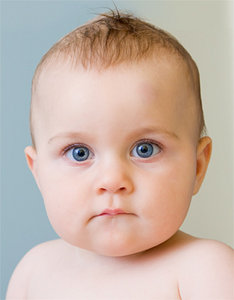7 Ways to Accident Proof Your Child and Your Home
By Staff Editorial
Every parent knows that sound, yet dreads it. Your child has just gone off like a fire truck siren, crying and shrieking at the top of their lungs because they got a "boo-boo." Granted, most accidents don't require a 3 a.m. trip to the emergency room, but anything you can do as a parent to cut down or eliminate common childhood accidents will make everyone happier and healthier. Here are 7 tips to keep your child out of harm's way, courtesy of Parenting.com.
Supermarket Safety Riding in the cart basket or hanging off the end of the cart may seem like a rite of passage, but it can lead to trouble. In 2005, more than 17,000 American children under age 6 were treated in emergency rooms for injuries related to such hijinks, and most were head or neck injuries. Instead, always strap your child into the seat until they are too big (or too independent!) to be confined. Bring along toys, books and snacks. Take advantage of those little car-shaped carts (they're low and don't tip easily). Mini-carts are also great for getting little kids to walk along and "help" you shop. Chore Time
 Little kids are sneaky and can get injured in a blink, even when you're right there. Whenever you're doing anything that's potentially hazardous, such as unloading a steaming dishwasher or using caustic cleaning chemicals, take a minute to settle your child in a playpen or high chair with their favorite toy or snack before you get started. Also keep in mind that the most common time for accidents is during meal preparation, so don't be shy about asking your spouse to stir the pasta sauce while you play peek-a-boo with your child.
Little kids are sneaky and can get injured in a blink, even when you're right there. Whenever you're doing anything that's potentially hazardous, such as unloading a steaming dishwasher or using caustic cleaning chemicals, take a minute to settle your child in a playpen or high chair with their favorite toy or snack before you get started. Also keep in mind that the most common time for accidents is during meal preparation, so don't be shy about asking your spouse to stir the pasta sauce while you play peek-a-boo with your child. Not Resistant Enough That pill bottle with the child-resistant cap might seem like the perfect in-a-pinch rattle toy. Remember that child-resistant is not the same as child-proof. A tenacious kid may still get the bottle open. Keep a stash of safe, age-appropriate toys in baskets or drawers all over the house. If you're really desperate for a distraction, reach for a set of keys. They may not be particularly clean, but they're far less hazardous to your child. It Only Takes a Second It may be easy to put baby's car seat or bouncer on top of the table so your child has better eye contact with you, or on top of the dryer because the hum lulls them to sleep. However, it is all too easy for the car seat or bouncer to rock or tip over altogether, which could lead to an accident of Humpty Dumpty proportions. The easiest way to make sure an infant in a car seat or bouncer doesn't accidentally wind up on the floor is to put them there in the first place. However, if the dryer is the only thing that will calm them down, commit yourself to being extra careful and staying close, just in case they start to tip over or fall. Remember, safety first. Splish-Splash in the Bath This may seem like a no-brainer, but you'd be surprised how many people leave their razors within a child's reach, which can have horrific consequences if your inquisitive toddler gets a hold of one. And of course they will, if you give them the opportunity. To prevent this, stash your razor high in the medicine cabinet when you're done using it, or at the very least, on a high shower rack. Better to keep it out of sight and out of your toddler's hands or mouth. Rock-a-Bye Baby When baby's sleeping, you might be tempted to skip buckling them into the stroller. After all, why risk waking them? Actually, Mom's Murphy's Law says it will be the one time you aren't nearby that they will wake up, roll over and fall right out. Play it safe: Slip on the straps and fasten them, even if baby isn't going anywhere. The chances you'll wake them up are pretty slim. Bedside Manners Keep a list on your fridge of which child is sick, what medications they may be taking and the last time they got a dose. Doing all of this will ensure you don't miss any doses or - even worse - double up a dose. It will also make it easier to share that information with the babysitter, or a paramedic in the event of an emergency, so you can avoid any potential (and unfortunately, far too common) medication interactions.
Page printed from:
http://www.toyourhealth.com/mpacms/tyh/article.php?id=1123&no_paginate=true&no_b=true
|

